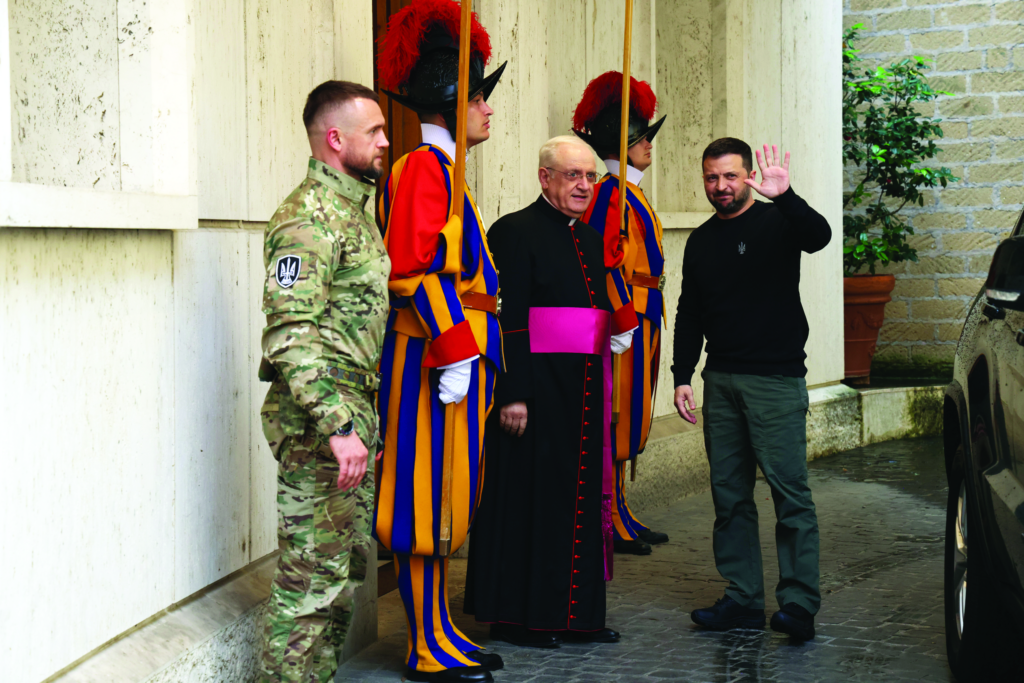
May 13, 2023, Vatican City. Arrival of the President of Ukraine Volodymyr Zelensky for the meeting with Pope Francis, accompanied by Father Leonardo Sapienza (Vatican/Pool/Galazka)
After the Pope’s allusions to possible Vatican efforts toward peace and much subsequent speculation, Pope Francis met on Saturday, May 13 — the anniversary of the first Fatima apparition in 1917 – with Ukrainian President Volodymyr Zelensky. He ended the meeting without achieving what he sought: Ukrainian approval for a Vatican role in eventual peace talks in the ongoing Ukraine-Russia war.
Zelensky started the meeting by placing a notebook on the table which contained the points he wished the Pope to hear and agree to.
Here below are excerpts from two articles which summarize what happened on May 13 between the two leaders.
Like Benedict XV, Pope Francis Seemingly Rebuffed in Bid to End European War
By John L. Allen, Jr.
During a keenly anticipated visit to Rome May 13 that included a 40-minute encounter with Pope Francis, Ukrainian President Volodymyr Zelensky made it crystal clear that whatever secret peace plan the Vatican may be cooking up, he’s not interested.
In a tweet shortly after the meeting concluded, Zelensky said he’d pressed Francis “to condemn crimes in Ukraine. Because there can be no equality between the victim and the aggressor.”
Speaking later during a special program on Italian television broadcast from Rome’s famed “Altar of the Fatherland” in the Piazza Venezia, Zelensky flatly ruled out a mediating role for the pontiff or the Vatican.
“With all due respect for His Holiness, we don’t need a mediator between Ukraine and the aggressor that’s seized and occupied our territory,” Zelensky said.
“No one can negotiate with Russia,” Zelensky said. “There can be no mediators.”
“They took away citizenship from people in the occupied territories,” he said, referring to Russian forces. “They forced them to go fight on the front. They tossed out all Ukrainian instruction. They prohibited the Ukrainian language. They forbade having a Ukrainian Church. They brought abuses and evil.
“You can’t have mediation with Putin,” Zelensky emphasized. “We know the consequences… it’s not a question of the Vatican, or America, or Latin America, or China, or any country in the world. Putin only kills, you can’t have a mediation with him.”
The Ukrainian leader implied that if the Vatican wants to do something constructive, it should get on board with Ukraine’s own peace plan.
“For me, it was an honor to meet His Holiness,” Zelensky said.
“However, he knows my position and the position of Ukraine. The war is in Ukraine, and therefore the plan [for peace] has to be Ukrainian. We’ve proposed a plan, and we discussed it today. We’re very interested in involving the Vatican and Italy in our formula for peace, for restoring the peace in Ukraine.”
To be clear, it’s not as if Russia has gushed with enthusiasm over the idea of Pope Francis and the Vatican as a go-between, either. Spokespersons for Putin have restricted themselves to saying they know nothing of any Vatican peace effort, leaving hanging the broader question of whether they’d be open to such an initiative.
In other words, like Benedict XV’s peace plan in 1917, Francis’ efforts to provide an exit strategy from the war in Ukraine seem dead on arrival.
[…]
For now, Francis may be compelled to limit his efforts to trying to mitigate the humanitarian consequences of the war. Yesterday, for example, Zelensky invited the pope to assist in efforts to return Ukrainian children who’ve been deported by Russian forces.
In much the same vein, Benedict XV failed to end the fighting during WWI but was able to blunt some of its excesses, such as ending the deportations of Belgians by German forces. Benedict also launched an office for prisoners in the Vatican which, by war’s end, had processed more than 600,000 pieces of mail, including 170,000 requests for help in locating missing persons and 40,000 appeals for repatriation of prisoners who were sick.
It remains to be seen whether, in the long run, Francis’ broader efforts to continue his press for peace will play as well in the eyes of history as his predecessor.
(CRUX, May 14, 2023)
Zelensky, with U.S. Backing, Wanted to Push the Pope into a Corner… But the Holy See Is Not Stupid
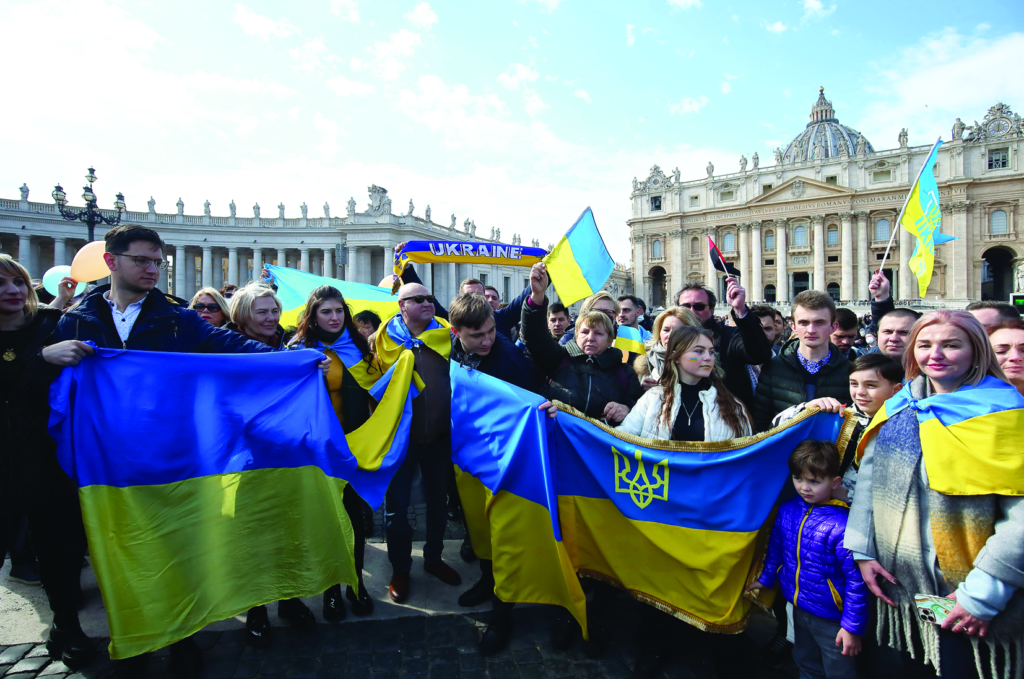
From the very beginning, many Ukrainians who live in Italy with their families, have come to St. Peter’s Square to solicit Pope Francis’ solidarity with their motherland Ukraine at war following aggression by the Russian Federation (Photo Grzegorz Galazka)
By Marco Politi
In living memory it had never happened that a head of state, meeting the pontiff, opened a large notebook on the interview table with the points to be specified.
A leader goes to the Pope to speak, but also to listen.
To present his vision, and at the same time to welcome the other’s perspective, which has a profound ethical-political authority, an authority that, yes, is without any military divisions or economic power, but which is distinguished by centuries of memory.
Now, with a cool head, the summit in the past, it becomes clear that the Ukrainian president had no desire to listen to Pope Francis.
[…]
His [Zelensky’s] goal was to push Bergoglio into a corner, sabotage any hypothesis of Vatican mediation, force him [Pope Francis] to consider the pressing — and propagandistic — requests of the Ukrainian leader: (1) Join the condemnation of Putin as a criminal, (2) Press for him to accept as the only outcome the so-called “Zelensky plan,” which plan is not a peace plan but a list of conditions that a Russia on its knees should be forced to accept, because the blackmail of sanctions would continue even after the retreat of the Russian army.
That’s why the notebook was placed on the desk with the points clearly visible.
In part concerning humanitarian matters (aid to the population, exchanges of prisoners, repatriation of children) but above all political requests culminating in the axiom that the only peace is the one imposed by a victorious Ukraine and in the exact terms decided by the Ukrainian leadership.
Thus, the gulf between Francis’ goal, oriented towards a ceasefire to favor a negotiated peace, and Zelensky’s approach appears evident.
[…]
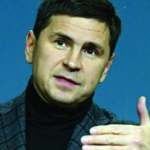 Twenty-four hours before Zelensky’s arrival at the Vatican, the line of the Ukrainian leadership had been sketched by the declarations of presidential adviser Mykhailo Podolyak: “There is no middle ground… There is an absolute aggressor, Russia, which has come to kill and destroy… And there is Ukraine which is defending its children and territories… Any attempt to simply say ‘Stop the war, come to the negotiating table’ would be to force Ukraine into defeat.”
Twenty-four hours before Zelensky’s arrival at the Vatican, the line of the Ukrainian leadership had been sketched by the declarations of presidential adviser Mykhailo Podolyak: “There is no middle ground… There is an absolute aggressor, Russia, which has come to kill and destroy… And there is Ukraine which is defending its children and territories… Any attempt to simply say ‘Stop the war, come to the negotiating table’ would be to force Ukraine into defeat.”
With a corollary explicitly addressed to Pope Francis: “Perhaps the Vatican is ready to demonstrate a much deeper understanding of these issues. Perhaps the Vatican is ready to acknowledge that Russia… has unleashed a great unprovoked war.”
A slap in the face to the policy of the Holy See, accused of not being capable of adequate analysis and of not wanting to recognize Putin’s aggression.
Zelensky’s collaborators reserved such slaps in the past for France, when Macron was trying to orient himself on an independent line, and for Germany when Berlin showed reluctance to the escalation of armaments.
Now it’s the Vatican’s turn.
On Saturday evening (May 13), Zelensky in a slightly more polite way reiterated: “With all due respect to His Holiness, we do not need mediators.”
There is only one peace plan and it is the Ukrainian one. […]
Moreover, it has not escaped the notice of the Vatican diplomacy that the Kyiv government can use these uncompromising tones only because it feels directly protected by Washington. As long as it is affirmed in the United States that peace is made only on the conditions established by Ukraine, the leadership of Kyiv can continuously play to the upside.
However, the Vatican insists on remaining above the contending parties. Francis has no intention of regressing to the times of Pius XII, when the Church was the protagonist of the Cold War.
Francis prefers that today the Holy See be on the side of those states (the majority of the world’s population) who want to end the conflict and consider the idea of a unipolar hegemony on the planet to be outdated.
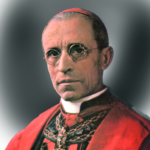 It is symptomatic that in a recent interview with the bishops’ newspaper Avvenire, the head of the Ukrainian Greek-Catholic Church Archbishop Shevchuk underlined that the Ukrainian government “does not understand the idea of a conference (world, with all the new protagonists on the international scene) summarized in the Helsinki-2 formula.”
It is symptomatic that in a recent interview with the bishops’ newspaper Avvenire, the head of the Ukrainian Greek-Catholic Church Archbishop Shevchuk underlined that the Ukrainian government “does not understand the idea of a conference (world, with all the new protagonists on the international scene) summarized in the Helsinki-2 formula.”
This dislike of Kyiv towards an international conference to establish the new rules of coexistence of the planet in the 21st century is singular.
But the apparent strangeness can be explained if one looks at Washington, which does not want to hear about it.
In the great geopolitical contest that opened with the Ukrainian war, Zelensky and his patrons perhaps underestimate the lucidity of an unarmed power, which, from John XXIII to John Paul II, from Paul VI to Francis, has shown that it is not exactly stupid in assessing the dynamics of the international scene.
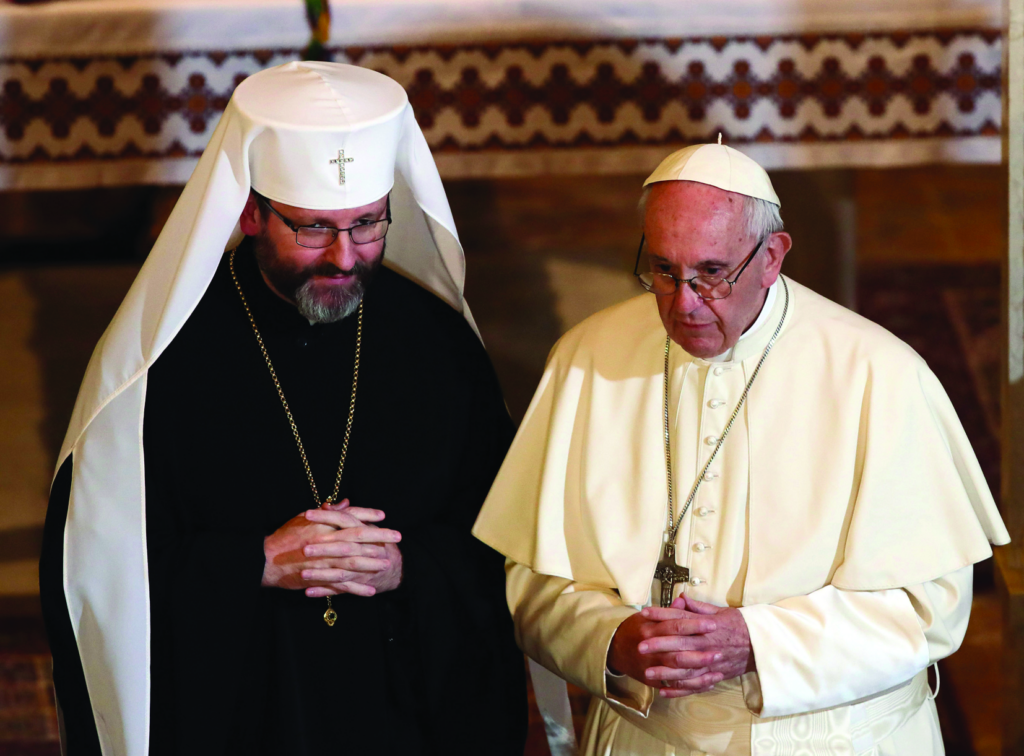
Pope Francis with the Major Archbishop of the Ukrainian Greek Catholic Church Sviatoslav Shevchuk (Photo Grzegorz Galazka)
—Il Fatto Quotidiano
“Blessed Are the Peacemakers” — Pope Sends Envoy to Kyiv
Returning from Budapest, Hungary, after his April 28-30 visit, the Pontiff said in his in-air press meeting: “Everyone is interested in the path to peace. I am willing, I am available, to do anything that needs to be done. There is a mission, but it’s not public yet, let’s see… When it’s public, I’ll talk about it.”
It became “public” when the Director of the Holy See Press Office, Matteo Bruni, announced May 20 that Pope Francis had tasked Italian Cardinal Matteo Zuppi with leading an attempted peace initiative with the Ukrainian government.
Cardinal Zuppi subsequently met with Ukrainian President Zelensky during a two-day mission to Ukraine June 5 and 6.
Zuppi has long been associated with the Community of Sant’Egidio, a Catholic lay association devoted to ecumenism and conflict resolution.
He is something of an expert in conflict resolution, in fact: he was one of the four mediators of the Rome General Peace Accords that helped end the civil war in Mozambique in 1992, in recognition of which he was made an honorary citizen of that country.
And in 1993, he traveled to Turkey to work for the release of two Italian tourists held by Kurdish rebels.
At the conclusion of Cardinal Zuppi’s Ukraine mission on the evening of June 6, a Holy See Press Office statement said, “The results of these talks, like those with religious representatives as well as the direct experience of the atrocious suffering of the Ukrainian people as a result of the ongoing war, will be brought to the Holy Father’s attention.”
The mission, the statement continued, “will undoubtedly be useful to assess the next steps to be taken both on a humanitarian level and in the search for paths to a just and lasting peace.”
Zuppi has said previously that Pope Francis’ position, that peace must be sought on any basis, “is so rare today, when speaking of peace seems to avoid taking sides or acknowledging responsibility.” He characterized the Pope’s efforts to build peace and refrain from laying total blame on either side, despite its frequent unpopularity, as “prophetic,” and said the Pope’s focus on ending hostilities “takes charge of the deep anxiety, sometimes unexpressed, often unheard, of the peoples who need peace.”
Zelensky holds firm: Peace plan must be “Ukrainian only”
President Zelensky commented on the June 6 meeting himself on the online platform Telegram: “I met with Cardinal Matteo Zuppi, Special Envoy of Pope Francis.
“We discussed the situation in Ukraine and humanitarian cooperation in the framework of the Ukrainian Peace Formula. Only united efforts, diplomatic isolation and pressure on Russia can influence the aggressor and bring a just peace to the Ukrainian land.
“I call on the Holy See to contribute to the implementation of the Ukrainian peace plan. Ukraine welcomes the readiness of other states and partners to find ways to peace, but since the war is on our territory, the algorithm for achieving peace can be Ukrainian only.”
Reports also circulated that a second envoy is being considered by the Pope as a liaison with the Russian government: Italian Archbishop Claudio Gugerotti, currently Prefect of the Dicastery for the Eastern Churches.
He was Nuncio to Ukraine from 2015 to 2020 and has previous experience in the Vatican diplomatic service, especially in central-eastern Europe. In 2020, he acted as the Pope’s envoy in Belarus, following President Lukashenko’s temporary barring of Belarussian Archbishop Tadeusz Kondrusiewicz, who had lodged formal complaints about government elections, from re-entering the country after a visit abroad.
Speaking to the May 22-25, 2023 Plenary Assembly of the Italian Bishops’ Conference, Cardinal Zuppi said, “We are the people of peace, starting with Jesus, who is our peace,” noting that Italy is “a hinge between North and South, but also between East and West.”
Italy is an ideal springboard for peace, he said, “because of the deepest and most characteristic roots of our people,” Zuppi said. As Italian Christians, “we are called to a fervent and insistent prayer for peace in Ukraine” and that global fraternity would reign, he said.
The rest of the world cannot remain “spectators of war reduced to a game.”
“In a world like ours we cannot do without a global vision,” he said, adding, “Following the painful events of distant countries, with prayer and information, is a form of charity. After all, the culture of peace is a decisive chapter of the culture of life, which draws inspiration from faith.”
As Vatican Secretary of State Cardinal Pietro Parolin told an international Summit of Heads of State and Government in Reykjavik, Iceland on May 17, “Together with Pope Francis we should ask, together with Ukraine, how to create peace: we cannot passively accept that the war of aggression continues in that country. It is the Ukrainian people who are dying and suffering. It is time to take initiatives to create a just peace in Ukraine and in all the so-called gray areas in Europe. I guarantee you that the Holy See will continue to play its part.”
—ITV Staff/ANSA






Facebook Comments